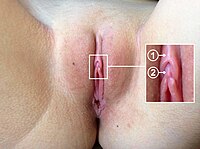
Recovery of consciousness after a brainstem cavernous malformation hemorrhage: A descriptive study of preserved reticular activating system with tractography
Sign Up to like & getrecommendations! Published in 2019 at "Journal of Clinical Neuroscience"
DOI: 10.1016/j.jocn.2018.10.074
Abstract: The aim of this study is to describe the imaging features, the relevant anatomy, and the fractional anisotropy (FA) values in diffusion tensor tractography (DTT) of the ascending reticular activating system (ARAS) fiber tracts in… read more here.
Keywords: reticular activating; recovery; consciousness; hemorrhage ... See more keywords

De novo thalamic arteriovenous malformation in a boy with a brainstem cavernous malformation
Sign Up to like & getrecommendations! Published in 2020 at "Journal of Clinical Neuroscience"
DOI: 10.1016/j.jocn.2020.04.073
Abstract: Brain arteriovenous malformations (bAVMs) have long been considered to be congenital, developing between the third and eighth weeks of embryogenesis. However, cases reporting their de novo formation suggest that these lesions can develop after birth… read more here.
Keywords: novo thalamic; boy; malformation; cavernous malformation ... See more keywords

Surgical Management of Brainstem Cavernous Malformation: Report of 67 Patients.
Sign Up to like & getrecommendations! Published in 2019 at "World neurosurgery"
DOI: 10.1016/j.wneu.2018.11.008
Abstract: BACKGROUND Brainstem cavernous malformations (CMs) are benign lesions, often show an acute onset, and result in a high rate of morbidity. Surgical resection could inhibit the progressive deterioration of neurologic function caused by repetitive hemorrhage.… read more here.
Keywords: approach cases; management brainstem; surgical management; approach ... See more keywords

Anterior Petrosectomy For Resection of Brainstem Cavernous Malformation.
Sign Up to like & getrecommendations! Published in 2019 at "World neurosurgery"
DOI: 10.1016/j.wneu.2019.11.138
Abstract: Brainstem cavernous malformations are uncommon vascular lesions that require complex surgical approaches. The case described in this video involved a 23-year-old male who presented with repeated, symptomatic episodes of bleeding of pontomedullary cavernous malformation which… read more here.
Keywords: anterior petrosectomy; cavernous malformation; brainstem cavernous;

Crossed brainstem syndrome revealing bleeding brainstem cavernous malformation: an illustrative case
Sign Up to like & getrecommendations! Published in 2021 at "BMC Neurology"
DOI: 10.1186/s12883-021-02223-7
Abstract: Background Since the nineteenth century, a great variety of crossed brainstem syndromes (CBS) have been described in the medical literature. A CBS typically combines ipsilateral cranial nerves deficits to contralateral long tracts involvement such as… read more here.
Keywords: crossed brainstem; cbs; case; brainstem ... See more keywords

A taxonomy for brainstem cavernous malformations: subtypes of pontine lesions. Part 1: basilar, peritrigeminal, and middle peduncular.
Sign Up to like & getrecommendations! Published in 2022 at "Journal of neurosurgery"
DOI: 10.3171/2022.1.jns212690
Abstract: OBJECTIVE Brainstem cavernous malformations (BSCMs) are complex, difficult to access, and highly variable in size, shape, and position. The authors have proposed a novel taxonomy for pontine cavernous malformations (CMs) based upon clinical presentation (syndromes)… read more here.
Keywords: pontine; pontine lesions; basilar peritrigeminal; cavernous malformations ... See more keywords

A system of anatomical triangles defining dissection routes to brainstem cavernous malformations: definitions and application to a cohort of 183 patients.
Sign Up to like & getrecommendations! Published in 2022 at "Journal of neurosurgery"
DOI: 10.3171/2022.6.jns212907
Abstract: OBJECTIVE Anatomical triangles defined by intersecting neurovascular structures delineate surgical routes to pathological targets and guide neurosurgeons during dissection steps. Collections or systems of anatomical triangles have been integrated into skull base surgery to help… read more here.
Keywords: system; cavernous malformations; anatomical triangles; dissection ... See more keywords

Nomogram for predicting an individual prospective hemorrhage risk in untreated brainstem cavernous malformations.
Sign Up to like & getrecommendations! Published in 2022 at "Journal of neurosurgery"
DOI: 10.3171/2022.8.jns221228
Abstract: OBJECTIVE In this study, the authors aimed to create a nomogram for precisely predicting the 5-year prospective hemorrhage risk in brainstem cavernous malformations (BSCMs). METHODS Patients with confirmed BSCMs in a single-center prospective observational series… read more here.
Keywords: prospective hemorrhage; hemorrhage; validation; hemorrhage risk ... See more keywords

Limited Impact of Serial Follow-Up Imaging in Clinically Stable Patients With Brainstem Cavernous Malformations
Sign Up to like & getrecommendations! Published in 2020 at "Frontiers in Neurology"
DOI: 10.3389/fneur.2020.00789
Abstract: Background: Clinical management of patients with brainstem cavernous malformations (BSCM) is often challenging due to the unpredictable clinical course and lack of high-quality evidence. Nevertheless, radiologic follow-up is often performed routinely. The objective of this… read more here.
Keywords: impact; patients brainstem; cavernous malformations; stable patients ... See more keywords

Brainstem Cavernous Malformations Management: Microsurgery vs. Radiosurgery, a Meta-Analysis
Sign Up to like & getrecommendations! Published in 2022 at "Frontiers in Surgery"
DOI: 10.3389/fsurg.2021.630134
Abstract: Given the rareness of available data, we performed a systematic review and meta-analysis on therapeutic strategy microsurgical resection and stereotactic radiosurgery (SRS) for brainstem cavernous malformations (BSCMs) and assessed mortality, permanent neurological deficits (PNDs), rebleeding… read more here.
Keywords: meta analysis; analysis; cavernous malformations; treatment ... See more keywords